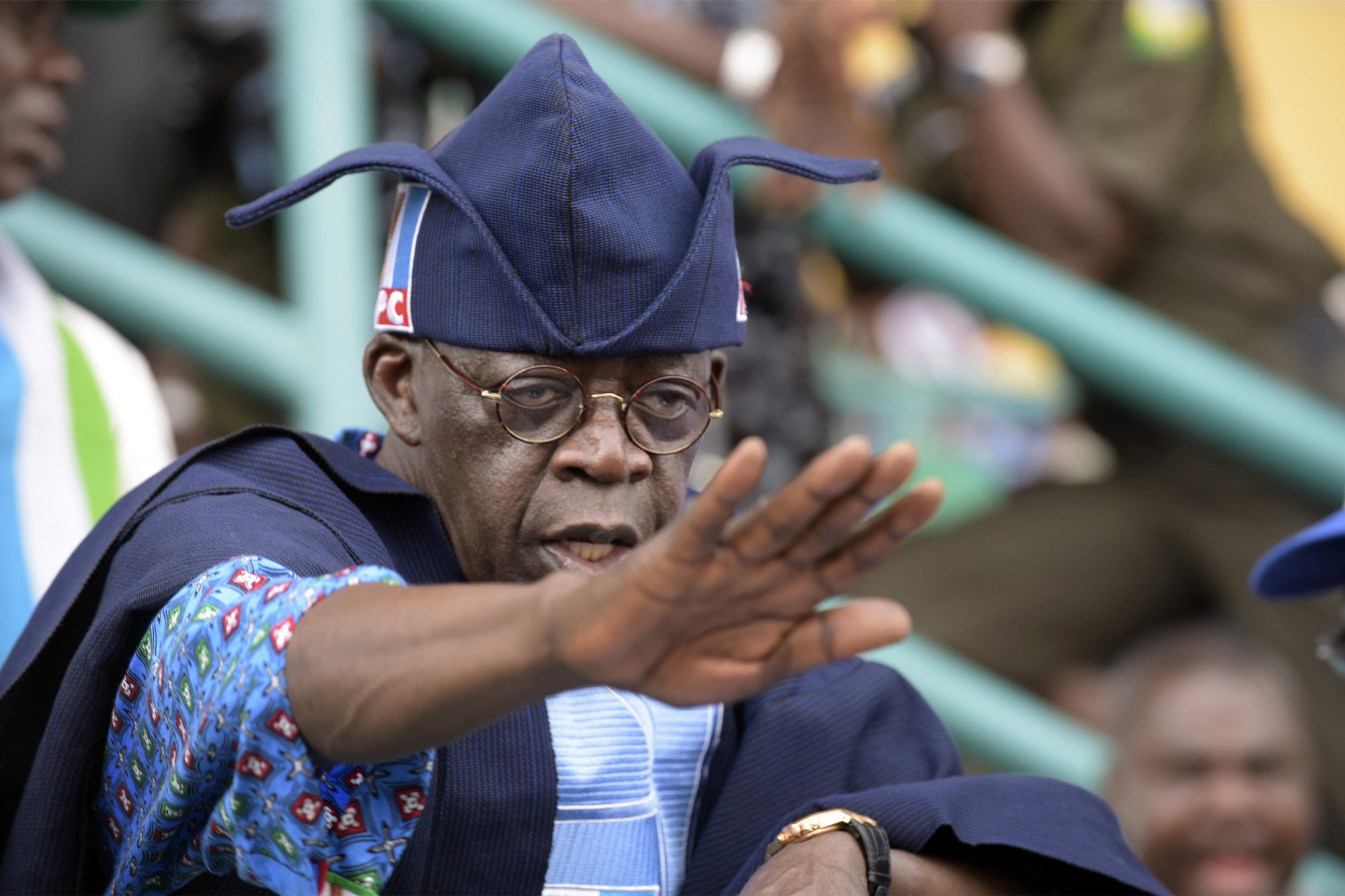by Desmond Afolayan
The acclaimed national leader of the ruling All Progressives Congress was recently in Guinea where he was reportedly involved in influencing the outcome of the October 11 presidential election in favour of the 77 years old incumbent President Alpha Condé. In a statement of triumphalism by Sunday Dare, his media aide, Bola Tinubu is adulated for extending the frontiers of his illustrious political empire beyond Nigeria.
Mr. Tinubu’s forays into another African country to openly take sides in the highest level of their domestic politics should ordinarily be seen as the private business of a private citizen with no risk of negatively impacting on Nigeria’s foreign relations interests, it is however important to note that the former Governor of Lagos state failed to appropriately draw the lines between acting in his own capacity and posturing that can suggest he was covertly acting on behalf of President Buhari or the Nigerian state.
To start with, Dare offers us an insight into how Bola Tinubu met his “friend and brother” President Condé in May this year at a meeting during his 5-day state visit to Nigeria for President Buhari’s inauguration. He went on to provide details of how “Tinubu in June 2015 visited Conakry, Guinea to further assess the country’s political terrain and the direction of the presidential campaigns” and how soon after, Tinubu moved into Conakry personally with his election strategy and planning team to work as an integral part of the president’s campaign team with barely 60 days to the election. What this means in sum is that President Condé came to Nigeria on a state visit and returned with a machinery that helped prosecute his re-election agenda.
The chest thumping by Tinubu’s media office necessitated disclosing that President Condé’s sensitive decision not to postpone the election in which he was a candidate was as a result of the fact that “Asiwaju Tinubu played a key role in advising the President to stick to the date, October 11. He reportedly provided context for the President by letting him into the experience Nigeria had during the last presidential election.” It is worth mentioning that the seven opposition parties called for a postponement, citing alleged irregularities in the electoral roll, but their pleas were rejected by the country’s Independent National Electoral Commission (CENI). Cellou Dalein Diallo, the candidate of the Union of Democratic Forces of Guinea (UFDG) also petitioned the Supreme Court of Guinea to have the election postponed, but it was rejected.
Not a few diplomatic watchers would wonder if President Buhari had an interest in returning his Guinean counterpart to office for a second term? Was Bola Tinubu acting on behalf of the Nigerian President and the Nigerian state? I doubt. The actions and statements by Bola Tinubu’s office however leave room for the possibility of mottled interpretations.
In a country whose democracy is yet fragile and in an election that was just the country’s second free multiparty national election since it gained independence in 1958, the help any true friend of the people of Guinea should have offered leading up to and during the election should have been in such critical areas as the advocacy for a peaceful and watchful conduct by the people, capacity building for state institutions like the electoral umpire and security agencies to perform their duties without fear or favour, and the advocacy for exemplary behaviour by the candidates and other key political operatives that will result in peaceful electoral outcomes.
Even if Mr. Tinubu absolutely had to support President Condé, conventional wisdom would have seen him do so discretely without showing his hand. He has however taken sides overtly, and though his horse in the race was victorious with 58% of the votes, there are 42% of other voters – a significant minority by any standards – who may one day wonder who the Nigerian was that denied them of their preference for the office of president.
In this complex era where Citizen Diplomacy is an increasingly important tool in advancing the interests of countries and where private citizens and corporations have been known to shape the texture of foreign relations a country has with others in more effective ways than diplomatic services can, it is important to keep an eye on the activities of our influential Nigerians on the global stage, especially those seen to be close to the president and the Government of Nigeria – off course without impugning on legitimate individual liberties and interests. Nigeria cannot afford hostilities from other countries after an alternation of power in the future brings to office individuals and political interests who nurture resentment for Nigeria for being seen to have worked behind the scenes to help sitting presidents utilise the power of incumbency to perpetuate themselves in power. Perception is just as powerful as reality.
This calls for greater vigilance by active citizens and the media in spotlighting what goes on in the famed corridors of power during state visits as power brokers with ulterior motives can be inadvertently conferred sovereign legitimacy simply by appearing in the company of the president. At this rate, as “Tinubu seems to be about the business of installing presidents across Africa”, the Presidency needs to deploy the finest tact in ensuring that as Mr. Tinubu goes along his way in his mission, he is seen to be acting on his own.
Desmond Afolayan writes from Brussels. He can be reached by email HERE.
The opinions expressed in this article are solely those of the author.







